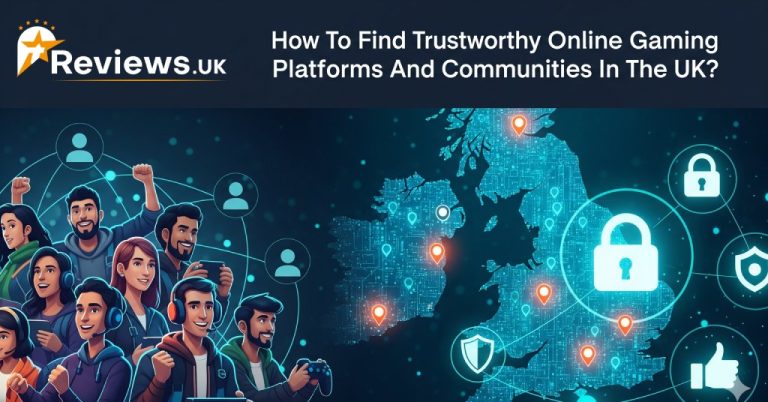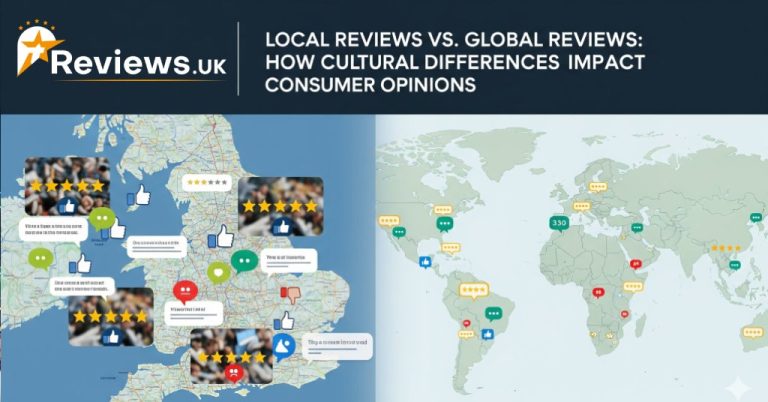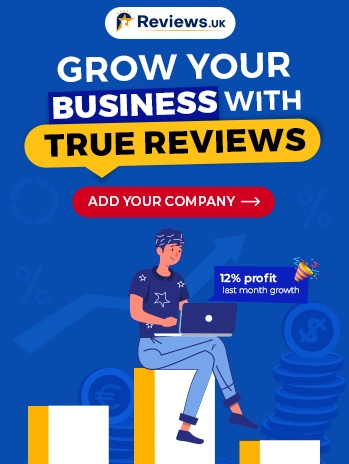The Growing Influence of Influencer Marketing

Influencer marketing is easily one of the most effective platforms in the current avatar of digital branding. Social media organizations can enable people to affect opinions, drive purchasing, and establish cultural leadership. Though this is a positive new model that benefits businesses and creators, it does come with serious ethical implications. Deceptive promos and hidden sponsorships erode customer trust, proving why transparency and responsibility reign.
This is due to the fact that the buyers are generally more educated. They want the real thing, not hollow endorsements. Audiences want to know if the recommendations are real or influenced by money. Brands and influencers that cannot keep up can ruin their reputation. Whether on Instagram, TikTok, or best review sites UK, accountability is more important than ever. This post breaks down influencer marketing ethics, with dos and don’ts, ramifications for bad behaviour, and the future of a more honest era for influencer-audience relations.
The rise of influencer marketing in the digital landscape
The way brands engage with consumers has changed dramatically since influencer marketing arrived on the scene. Now brands simply endorse social media influencers in order to avoid boring old advertising. These are personal, relatable, and ‘sticky’ campaigns and are super effective at targeting target audiences.
However, growth has brought challenges. What goes up for influencers as sponsorships roll in: The number of followers asking whether the influencer really likes whatever it is they’re pushing. This cynicism is what promotes the requirement for ethical influencer marketing to maintain trust and safeguard audience relationships. Honesty that makes sure that advertisements are honest and trustworthy.
What Is Influencer Marketing?
Influencer marketing refers to a strategy in which brands combine with those who have notable online influence. Using videos, posts, or stories from social media, those collaborations engage broad audiences. The endorsements feel so genuine that they are more credible than typical ads.
The effectiveness of these campaigns is largely rooted in the intersection of influencer values and brand messaging. The more followers see authenticity, the more they engage. Trust deteriorates when endorsements sound forced, which only goes to show that relationships should be forged with caution and integrity.
Influencer Marketing: An Overview and Definition
In its simplest explanation, influencer marketing is the digital version of Word-of-Mouth recommendations. Unlike traditional media celebrities, influencers have more personal relationships with followers. They seem more like believable, regular folks. This intimacy is full of possibility and of danger.
Influencer marketing, however, can be controversial if partnerships are not transparent. And financial motivations muddle the otherwise clear-cut line between sound advice and a sales agenda, highlighting the need for ethics guidelines that aren’t so murky.
Viewpoint Players in Influencer Marketing: Influencers, Brands, and Consumers
This ecosystem is formed by three actors: The content creator, who is called an influencer, the brand or firm seeking to be advertised, and the audience, who receive the message. The key to success is to strike a fair balance of those relationships.
Brands bring resources, influencers bring reach, and consumers bring trust. If the chain breaks in some way — through fraud, manipulation, or opaque sponsorship — campaigns can collapse. It keeps influencer marketing on the up and up, so both sides win without deceit.
The Impact of Social Media Platforms on Campaign Efficacy
Social media companies such as Instagram, TikTok, and YouTube define the ways that influencer content reaches viewers. Algorithms promote popular posts, but they can also favor sensational content above sincere reviews.
This pushes some influencers to stretch the truth or prioritize engagement above integrity. Influencer behavior needs to be guided by ethics around how influencers interact with these systems to avoid unchecked misinformation from being distributed.
Understanding Influencer Marketing Ethics
Influencer marketing ethics are the ethical standards of fair and transparent campaigns. These standards of practice oblige influencers to disclose partnerships transparently and to speak truthfully about products. Brands share equal responsibility. They need to be sure that campaign ads comply with advertising laws and have factual bases. Compliance with these standards maintains the trust and relationship between consumers over the long run.”
What is Ethics?
Ethical consideration in influencer marketing is based on transparency, responsibility, and respect for the audience. It removes the incentive for creators to push products they don’t care about, and deters brands from getting shady. Ethical marketing campaigns are concern related and always look out for what is best for the customer. Read them to prove that being authentic leads to loyalty, not just sales.
Faculty Perspectives: Transparency, Integrity, and Accountability
Transparency in Influencer Marketing creates trust among influencers, brands, and audiences. So what does honesty look like when it comes to sponsored content? It’s harder to articulate than it is to spot, but it can involve putting sponsored content into boxes, and referring to lived life rather than make-believe. It is the responsibility of influencers to take into account the impact that their recommendations have on their audience. These foundations lay the path for a practiced success. “When your followers notice open and consistent messaging, credibility increases, and alliances flourish,” Dicke said.
The ethical dilemma for influencers and brands
Influencers and brands feel pressure to make something happen yesterday. Fierce competition can cause some to cut corners, such as hiding sponsorships (or overselling products). This is an example of unethical influencer advertising: It tarnishes the creator’s brand and is often punishable by law. The push-pull is between profit motives and moral obligation. Ethical judgments may sacrifice short-term gain for long-term audience trust.
The Ethical Dilemma: Paid vs. Organic Influencer Reviews
Sponsored content is an obvious potential problem for authenticity. Influencer reviews are organic (from experience), while paid promotion could be countered as a biased source. It all comes back to true disclosure. Influencers are able to have sponsorships and still have credibility if it is completely disclosed when the content is advertising. Viewers respect transparency, even if influencers are being paid, which just makes for an informed decision.
Transparency in Influencer Marketing: A Key to Ethical Practices
Clear disclosure is critical. Guidelines from the FTC, for instance, require influencers to tag sponsored posts with hashtags like #ad or #sponsored. That openness protects followers from misguided promotion. Non-disclosure of relationships is trust-destroying, brand-damaging, illegal behaviour. The transparent approach indicates respect for people, while also supporting the influencer’s integrity as a trusted voice.
Authenticity in Influencer Marketing: The Foundation of Trust
Ethical influencer marketing works best when creators only promote products they genuinely trust and support. It builds an emotional connection and yields a more powerful response to the campaign. Case studies present that influencers who don’t compromise their life perspectives keep a steady following. Followers repay honesty with loyalty, something that shows integrity is good for both ethics and business.
The Consequences of Unethical Influencer Marketing
It undermines the integrity of Unethical Influencer Marketing when an untrustworthy influencer gets involved. Misleading advertising undermines trust, lowers engagement, and ruins long-term relationships with consumers. Followers soon abandon influencers who sacrifice honesty for money.
Legal risks also loom. Those who fail do so face heavy fines from regulators. It can generate the kind of public backlash that undoes years of brand building. Confidentiality may only be taken on obligation and can be protected by maintaining ethics in every case.
Best Practices for Ethical Influencer Marketing
By keeping morale high, The Campaigns can succeed without losing morale:
- Disclose every paid partnership openly.
- Work exclusively with the influencers that share brand values.
- Don’t make unsubstantiated claims about your product.
- Regularly replace content to maintain compliance with the guidelines.
Such practices protect trust and respect with audiences, building the foundation for lasting partnerships.
Social Media Platforms and Influencer Marketing Ethics
Platforms like these are also a key part of setting and enforcing ethical standards. A lot of offer tools for labeling sponsorships and tracking compliance. These platforms are helping curtail unethical content by enforcing standards and enhancing detection mechanisms. But the responsibility ultimately belongs to the brands and the influencers. Algorithms can shape reach, but integrity has to guide how content is made and shared.
The Future of Influencer Marketing Ethics: Trends to Watch
The call for transparency will only heighten. Consumers want to see authentic influencers working with brands over extended periods. Micro-influencers, who have smaller but more tightly engaged followings, are trending in part because they’re seen as credible.
Regulators will probably tighten standards, demanding even clearer disclosures and accountability. Early ethical influencer marketing adopters in companies will have an advantage, gain loyalty, will avoid fines.
Conclusion: Why Ethical Influencer Marketing Is the Way Forward
Influencer marketing is a great and serious obligation. Start-up brands and influencers that tell an honest story will earn and keep the trust and consumer loyalty and win long-term success. Clear guidelines protect all parties involved — from creators to consumers.
Be it transparent influencer marketing or using an honest campaign, trust is what will sustain you. Deceitful moves, though, can provoke public backlash, legal action, and shattered reputations. Ethics are not a luxury that we can bypass; they are what determine and sustain power in a competitive digital environment. The brands and the influencers who will take over the future are the ones that value integrity over the quick fix and seek to maintain genuine relationships with their audience.











